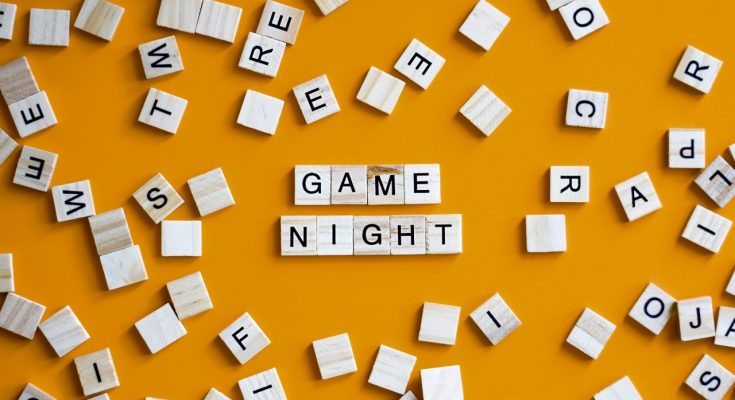In the hustle and bustle of modern life, finding simple yet effective ways to maintain and enhance mental health is crucial. One such delightful and intellectually stimulating method is engaging in word games. These games, which range from crosswords to Scrabble, not only offer hours of fun but also come with a host of therapeutic benefits for mental health and overall wellbeing.
The Cognitive Advantages of Word Games
Enhancing Vocabulary and Language Skills
Word games are an excellent way to expand your vocabulary and improve language skills. They encourage players to think of new words and learn their meanings, usage, and spellings. Whether you’re playing a classic game of Scrabble or a modern app like Words with Friends, each session helps you to discover new words and phrases, thus broadening your linguistic horizons.
Improving Memory and Cognitive Function
Engaging in word games regularly can significantly boost your memory and cognitive function. These games require you to recall words, recognize patterns, and make quick decisions. This mental exercise helps to keep your brain active and sharp, enhancing both short-term and long-term memory. Studies have shown that individuals who engage in word games and puzzles have a reduced risk of developing cognitive impairments as they age.
Emotional and Psychological Benefits
Stress Relief and Relaxation
Playing word games can be a wonderful way to unwind and de-stress. The focus required to play these games can provide a mental escape from daily worries and anxieties. The sense of accomplishment when finding the right word or solving a challenging puzzle can also produce a rush of dopamine, the brain’s natural feel-good chemical, which promotes feelings of happiness and relaxation.
Enhancing Mood and Emotional Wellbeing
The satisfaction and enjoyment derived from word games can have a positive impact on your mood and emotional wellbeing. Regularly engaging in these activities can lead to a more positive outlook on life. For those experiencing depression or anxiety, word games can serve as a therapeutic distraction, offering moments of joy and accomplishment.
Social Benefits of Word Games
Building Social Connections
Word games are not only solo activities; they are also a fantastic way to build and strengthen social connections. Games like Scrabble, Boggle, or online word games can be played with friends, family, or even strangers. These interactions foster social engagement, which is essential for mental health. Sharing a common interest in word games can create bonds and offer opportunities for meaningful conversations and laughter.
Encouraging Healthy Competition
Engaging in friendly competition through word games can be highly motivating and enjoyable. Competing with others challenges you to improve your skills and strive for better performance. This healthy competition can boost self-esteem and confidence, providing a sense of achievement and pride.
Educational and Developmental Benefits
Enhancing Problem-Solving Skills
Word games often require strategic thinking and problem-solving abilities. Players must analyze letter combinations, anticipate opponents’ moves, and devise winning strategies. These cognitive challenges promote critical thinking and enhance problem-solving skills, which are valuable in everyday life and professional settings.
Supporting Lifelong Learning
Word games encourage a love for lifelong learning. They stimulate curiosity and a desire to learn new words, meanings, and language nuances. This continuous learning process keeps the mind engaged and open to new information, contributing to personal growth and intellectual development.
Word Games and Mental Health Therapy
Therapeutic Applications
Therapists and mental health professionals have recognized the therapeutic potential of word games. These games can be used as tools in cognitive-behavioral therapy (CBT) and other therapeutic approaches. They help patients improve cognitive function, manage stress, and develop healthier coping mechanisms.
Accessible and Inclusive
One of the most significant advantages of word games is their accessibility and inclusivity. They can be played by people of all ages, backgrounds, and abilities. Whether played on paper, board, or digital platforms, word games are easily accessible and adaptable, making them a versatile tool for mental health support.
Types of Word Games and Their Benefits
Crosswords
Crossword puzzles are a classic word game that can greatly enhance mental agility. They require players to recall words and definitions, think critically, and make connections between clues and answers. Solving crosswords regularly can improve verbal skills, memory, and concentration.
Scrabble
Scrabble is a popular board game that combines vocabulary skills with strategic thinking. Players must form words on a game board using letter tiles, scoring points based on word length and letter value. Scrabble promotes learning new words, spelling, and anagramming skills, making it an excellent educational tool.
Word Search
Word search puzzles involve finding hidden words within a grid of letters. This game is particularly beneficial for improving visual recognition and attention to detail. Word search puzzles are relaxing and can be a great way to unwind while keeping the brain active.
Anagrams
Anagram games challenge players to rearrange letters to form new words. These puzzles boost cognitive flexibility, as they require players to see letters in different combinations and think creatively. Anagram games can enhance problem-solving skills and linguistic creativity.
Word Ladder
Word ladder games involve transforming one word into another by changing one letter at a time, with each step forming a valid word. This game encourages logical thinking, vocabulary expansion, and word association skills. It’s a fun and engaging way to stimulate mental agility.
How to Incorporate Word Games into Your Routine
Making Time for Play
Incorporating word games into your daily routine can be simple and enjoyable. Set aside a few minutes each day to engage in a word game, whether it’s during your morning coffee, lunch break, or before bed. Regular practice can maximize the cognitive and emotional benefits of these games.
Playing with Others

Invite friends or family members to join you in playing word games. Organize game nights or participate in online word game communities. Playing with others not only enhances social connections but also adds an element of fun and friendly competition.
Exploring Digital Platforms
There are numerous digital platforms and mobile apps that offer a variety of word games. These apps often provide different levels of difficulty, allowing you to choose games that match your skill level and preferences. Exploring digital word games can introduce you to new challenges and keep your brain engaged.
Read More: The Impact of Language on Memory: How Words Shape Our Recall Abilities
Conclusion
Word games are more than just a fun pastime; they are a powerful tool for enhancing mental health and wellbeing. From improving cognitive function and language skills to providing stress relief and fostering social connections, the benefits of word games are vast and varied. By incorporating these games into your daily routine, you can enjoy a mentally stimulating and emotionally rewarding activity that promotes overall wellbeing. So, the next time you’re looking for a way to unwind and sharpen your mind, consider reaching for a word game – your brain will thank you!




